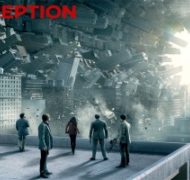Dreams: The Forgotten Spiritual Discipline
Blog / Produced by The High Calling
The following review contains no spoilers.
If you plan on seeing the movie Inception, you better show up with your brain fully engaged. This movie makes the plot of the Matrix look like an ABC after school special. Before you go, make peace with the idea that you’re going to have a hard time figuring out what’s happening. And when you leave the theater, you’ll have a hard time remembering the things you didn’t understand while you were watching them.
In other words, this movie plays like a dream. Which makes sense, because the whole movie is about dreaming, and most of it takes place inside the dreams of the people in the story.
The main character is Cobb, and a major conflict in the story is that his deceased wife keeps showing up in his dreams. She plays a kind of trickster role, spoiling things and making a general nuisance of herself. Anyone who understands dreams has no problem anticipating at least one part of this movie’s plot.
Cobb has some unresolved issues.
The dream theory behind Inception is very Jungian. According to C.G. Jung, every character in your dreams is actually a reflection of you. Everyone you’ve ever been is still down inside you, submerged in the undifferentiated soup that Jung calls the unconscious. Down there somewhere are your various childhood and adolescent selves, along with the parts of your personality that you keep hidden, intentionally or unintentionally. When you dream, these aspects of your personality emerge as characters in your dream story. A childish part of you might appear in your dream as one of your own children. If you are a man, your feminine side - probably somewhat hidden - might appear as your wife or some other powerful female in your life.
I happen to think that Jung is getting at the truth, but no one knows for sure. The only thing we do know is that your mind creates the most amazing stories, populates them with fascinating characters, and screens the whole production for you at night while you sleep.
It’s interesting to me that the Bible is filled with stories of God speaking to people through their dreams, but we don’t hear many people in the modern church talking about that anymore. We celebrate the amazing dreams of the two famous Josephs in the Bible, but we don’t pay attention to our own dreams anymore.
When did we stop thinking of dreams as a celebrated vehicle for God to speak to us? When did this powerful way of hearing from God fall out of favor?
Morton Kelsey, a Christian psychologist, asked this very question in his book, Dreams: A Way to Listen to God. He came to the startling conclusion that while the Church seems to fight publicly with science, we have adopted some of the modern methods of science ourselves. There is something modern and technical about the way we read the scriptures. And we have abandoned the mysterious practice of listening to dreams.
I’m going to make a rather bold statement here:
If you’re not listening to your dreams, you’re missing out on one of the most delightful, natural, and biblical ways that God works in our lives to teach us and to help us to grow.
And now for some really wonderful news. You don’t have to understand dreams for them to work. At night we close our eyes and our defenses drop like toys from the hands of sleepy children. Images and symbols dance through our minds. Not every dream is deeply significant, but the scriptures teach us that some of them are.
If you're paying attention, you just might learn some things.
So get a pen and paper and set them beside your bed. If you dream and wake up, write down the dream and in the morning puzzle over its meaning. Be prayerful about it. Talk about your dreams with trusted friends. Wrestle with your dreams; seek to learn from them.
You won’t always understand your dreams, but you should be listening to them.
Gordon Atkinson
Image from the download section of the official "Inception" movie website.




